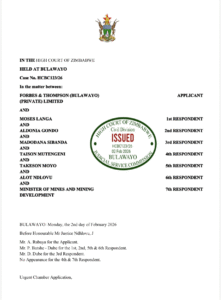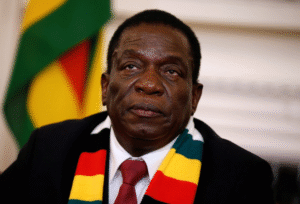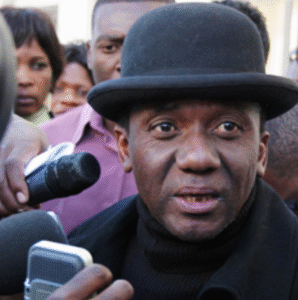UNDER THE IRON FIST: THE JAILING OF SIKHALA AND NGARIVHUME IN THE FIGHT FOR JUSTICE
The wheel of democracy continues to grind in a tumultuous landscape where human rights and liberties are increasingly infringed upon, particularly in Zimbabwe. Central to the latest strife are two defiant figures, Job Sikhala and Jacob Ngarivhume, both recognized for their outspoken stand against injustices and governmental excesses. The pair have found themselves behind bars, victims of an unsettling trend of politically motivated incarcerations.

Sikhala, a senior figure in the Movement for Democratic Change Alliance (MDCA), has been languishing in jail for over a year. His plight has been magnified by the government’s refusal to grant bail, despite several appeals, painting a troubling picture of the democratic process in the nation. Sikhala’s incarceration represents a clear attempt to stifle dissent, silence the opposition, and suppress the fundamental human right to free speech.
Jacob Ngarivhume, the leader of Transform Zimbabwe, another opposition party, is likewise detained. His imprisonment carries similar political undertones, indicative of a concerted effort by the government to curtail the space for opposition and maintain an oppressive status quo. This further confirms the narrative of escalating authoritarianism that undermines the values of democracy, freedom, and justice.
In this strained political milieu, the imprisonment of Sikhala and Ngarivhume highlights a worrying trend towards weaponizing the law against political dissenters. The dubious charges these leaders face, often articulated in sweeping, ambiguous terms, reflect a systemic effort to delegitimize the opposition. A chilling effect permeates the political landscape, deterring potential dissenters and stifering public discourse.
The global community has not been blind to the deteriorating human rights situation in Zimbabwe. Amnesty International, Human Rights Watch, and other organizations have expressed grave concerns. However, despite international condemnation, the plight of Sikhala and Ngarivhume persists.
In response, the imprisoned leaders have urged their followers to continue the fight for justice, proving that even the confines of a jail cell cannot quench the flame of resistance. Yet, their incarceration poses a significant challenge to the integrity of the democratic process in Zimbabwe.
It is crucial to recognize that jailing political opponents does not quell dissent, but rather fuels the fire of resistance. The imprisonment of Sikhala and Ngarivhume has indeed sparked international attention, shedding light on the democratic deficit in Zimbabwe. However, their continued incarceration and the apparent disregard for due process of law and human rights remain a significant cause for concern.
What is clear, is that the fight for justice will continue, in and out of jail cells, in courtrooms, on the streets, and in the hearts and minds of those who dare to dream of a fairer Zimbabwe. The resilience of these leaders is a testament to the enduring power of the human spirit in the face of oppression. As we watch the struggle from afar, we are reminded of the profound words of Nelson Mandela: “It is said that no one truly knows a nation until one has been inside its jails.”
The current state of affairs with Sikhala and Ngarivhume exposes the depths to which Zimbabwe’s democratic facade has been hollowed out. It is a clarion call for justice, for democracy, and for human rights. It’s time for the world to respond.





